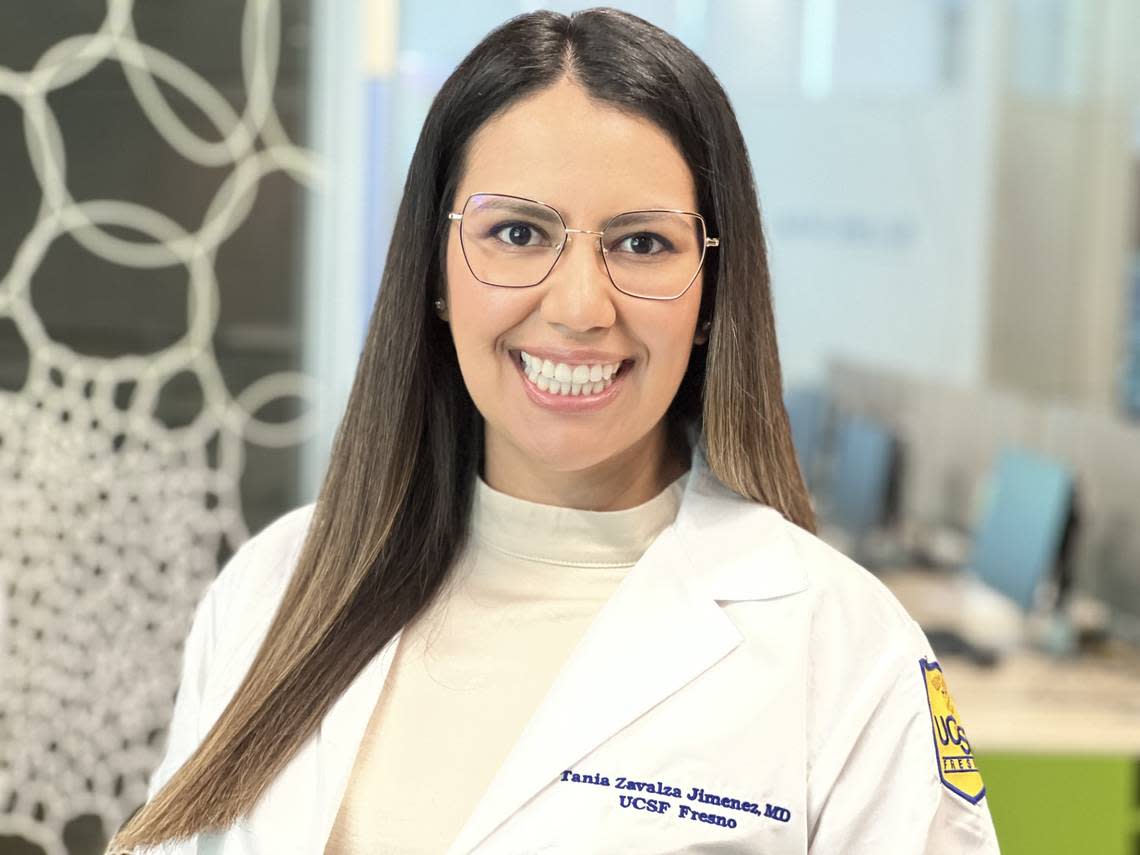Being undocumented made her path to becoming a doctor more challenging. She persisted.

A desire to help people, especially underserved communities and those who do not speak English, motivated Dr. Tania Zavalza Jiménez to become a physician.
“As I grew up and I started to realize more of the health disparities, I was driven towards it more and more,” said Zavalza Jiménez of wanted to become a doctor.
Being undocumented at one point in her life, Zavalza Jiménez said she also felt called to work with undocumented and migrant communities.
Zavalza Jiménez, who was born in born in Ayutla, Jalisco, México, said she was about 2-years old or a little younger when her family moved to San Francisco. Then her family relocated to Turlock where she grew up.
Being undocumented made college and becoming a doctor difficult, said the 32-year-old doctor who completed on June 30 a three-year residency training program in Family and Community Medicine at UCSF Fresno.
According to UCSF spokeswoman Brandy Ramos Nikaido, the San Joaquín Valley has one of the lowest number of doctors per 100,000 people in California.
Depending on the specialty, it takes 11 years or more to produce a practicing physician after high school, according to UCSF Fresno, the largest academic physician training program in the Valley.
Zavalza Jiménez was among 100 UCSF Fresno graduates who completed their training in June.
A challenging path
Her immigration status made her path to becoming a doctor more challenging.
“It was difficult,” said Zavalza Jiménez., who became a legal resident when she was 19 or 20 years of age.
Zavalza Jiménez was undocumented when she finished high school and had to go to a community college instead of a four-year university because her family couldn’t afford it.
“There’s not a lot of help back then for people in my situation, or at least we weren’t aware of it,” Zavalza Jiménez said.
Zavalza Jiménez went to Modesto Junior College and then transferred to UC Davis.
“Starting as a junior in college is pretty hard if you’re trying to pursue medicine, it’s harder to get research, it’s harder to get things that you need for medicine,” she said. “But my parents always supported me. They always were there for me, whether it be financial or any other reason.”
After UC Davis, Zavalza Jiménez worked as a medical scribe at Memorial Medical Center in Modesto for a year before she went to Ross University School of Medicine in the Caribbean.
Zavalza Jiménez said she knew about the USCF Fresno program and wanted to come back closer to home. So, in her fourth year of medical school, she applied to UCSF Fresno to do a couple of her fourth-year electives.
As a medical student Zavalza Jiménez did three rotations at UCSF Fresno and knew that it was the place where she wanted to go for residency.
When Zavalza Jiménez got her residency at UCSF Fresno, she was not only excited but “happy to be able to be close to home and at a very good program.”
“I wanted to be challenged,” she said.
She won’t be leaving the Valley as she is staying on as faculty in the Family and Community Medicine Department at UCSF Fresno. She is also going to be working at the hospital with the residents.
“It’s a big responsibility, but I’m excited too. I really do enjoy teaching. So, I knew that something I wanted to incorporate,” she said. “I really like the residency program. The faculty and the attendees I work with are amazing. So, I feel like there’s still so much for me to learn. It’s a great group to work with.”
Zavalza Jiménez, who is bilingual, said her clinic site will be at United Health Centers in Parlier where she would be able to provide bicultural and biliteracy patient care.
“I really wanted to work with the rural population and like the migrants, undocumented. So that was the perfect site for me,” she said. “Everyone in the Central Valley needs help, that population just needs a lot of extra help.”
“We deal with a lot of patients that are undocumented themselves, so we have to kind of practice medicine a little bit differently, right?” said Zavalza Jiménez.
For example, she said some drugs that work best are super expensive, “so you have to work around the system a little bit.”

